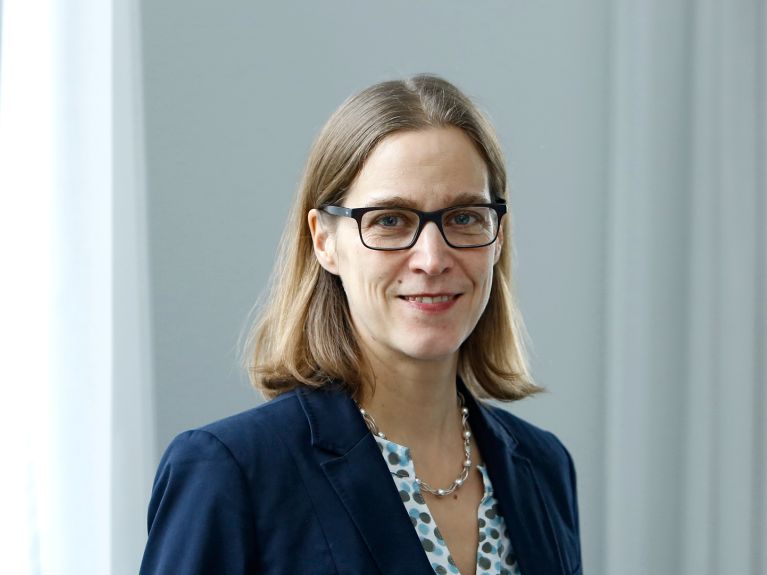Economist with an eye for the essentials
Outstanding expert: The economist Nicola Fuchs-Schündeln has been awarded the Leibniz Prize 2018.

Germany. On March 19, eleven scientists received the most important German advancement award for research, the Gottfried Wilhelm Leibniz Prize. One of the award winners is Nicola Fuchs-Schündeln, Professor of Macroeconomics and Development at the University in Frankfurt. She has enriched economics with innovative methods, paying particular attention to how economics influences people’s everyday lives.
Professor Fuchs-Schündeln, you will receive the Gottfried Wilhelm Leibniz Prize 2018 as an economist who has done exceptional analyses in a field rich in tradition. What motivates you?
During my study abroad in Argentina in the mid-1990s, in the midst of an economic crisis, I realized how important economic development is for people’s well-being. For me, the questions of the subject are therefore profoundly socio-scientific. Although in economics we tend to work more quantitatively and with more abstract models, the core issue is people’s well-being. That’s what drives me. In my research, I devote myself to analysing consumer behaviour, saving and working behaviour and consumer preferences.
The stages of your career include the American elite universities Yale, Stanford and Harvard. Why did you decide to return to Germany?
In Germany and Europe a lot is happening in the research and university landscape. It gives me great pleasure to be part of these developments. For example, at the University of Frankfurt we’ve built up a structured doctoral programme in economics, whose graduates are also successful on the international academic market. In addition, parts of my research deals with the German reunification, so that I have always maintained close contact with Germany. The German division and reunification are similar to a living high-tension laboratory. After all, people lived for 45 years in two different economic systems.
I hope that the proportion of women in economics will continue to grow.
Your analyses are in demand in economic policy. How important are new perspectives for the supposed “male domain” of economics?
I believe that diversity is very important, especially in policy advice. In confrontation with other approaches and ways of thinking, new ideas can be developed and social developments taken account of. So I hope that the proportion of women in economics will continue to grow. But the private sector could also make better use of many talented people.
Interview: Bettina Mittelstraß
